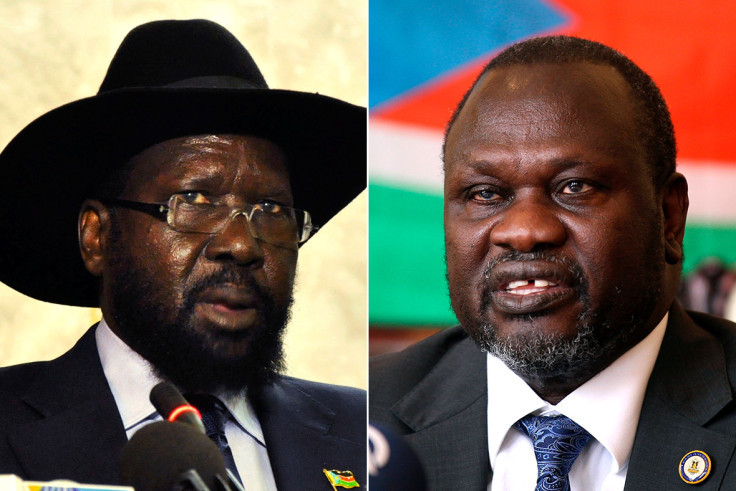South Sudan cracks down on interviews with rebel leader Riek Machar as civil war rages
Machar, currently in South Africa, was dismissed as vice-president after fleeing Juba following July violence.
South Sudan has banned the local media from interviewing rebel leader and ousted vice-president Riek Machar, who is currently in South Africa. The ousted vice-president Machar told IBTimes UK in an exclusive interview that he was ready to go home.
The censorship move came days after South Sudan's Eye Radio FM was shut down by the National Security Service. An official told the Sudan Tribune, that the radio station was closed for for allegedly "promoting rebellion" in the country, which has been ravaged by a civil war erupted in 2013.
"There are orders and directives we have received from the above that no media is allowed to talk to Riek Machar and come and broadcast or print it out here inside South Sudan.
"If you defy these directives, then the violators will not escape the longest arms of the law. They will have to face the full force of the law," said the security officer, who spoke on condition of anonymity.
"So be very careful you members of the media, especially those of you in the electronic media who do not comply with the policies of the government because you think you can not be reached. It is a false perception. The government has the longest arms to reach you," the officer continued.
Machar has called on the government of president Salva Kiir to collaborate and implement the peace deal signed in 2015 to end the bloody conflict. However, South Sudan has often blamed Machar, and the opposition still loyal to him, for the ongoing unrest and failure to implement the peace deal.

South Sudan war
South Sudan became the world's newest nation when it declared independence from Sudan in 2011. However, the country descended into civil war in 2013 when Kiir, of the Dinka ethnic group, fired his deputy Machar, from the Nuer group, and his cabinet.
Ethnic-related violence spread, with militia groups carrying out attacks in villages and areas known to be inhabited by either the Dinka or Nuer tribes.
An estimated 50,000 people have been killed, and hundreds of thousands are either facing starvation in the country or have fled, amid allegations of crimes against humanity committed by both sides, including rape, torture and the use of child soldiers.
Kiir and Machar have agreed on several peace deals, but have failed to control their troops, who have broken every ceasefire signed since 2014. Machar, who leads the opposing faction Sudan People's Liberation Movement-in-Opposition (SPLM-IO), originally left South Sudan in 2013.
His return and his reinstatement as vice-president in April had restored hopes for the implementation of the peace process. However, Machar fled again following deadly fighting that left at least 300 people dead in Juba in July.
The rebel leader accused government forces of opening fire on his troops, and said he would return to the capital once a third-party force was deployed to ensure his and his officials' safety. He was replaced by Taban Deng Gai, a former ally of his.
© Copyright IBTimes 2024. All rights reserved.






